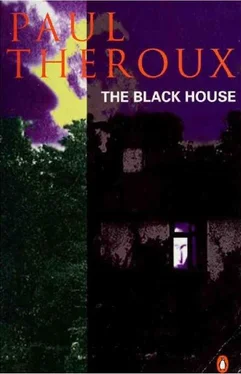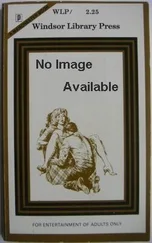Paul Theroux - The Black House
Здесь есть возможность читать онлайн «Paul Theroux - The Black House» весь текст электронной книги совершенно бесплатно (целиком полную версию без сокращений). В некоторых случаях можно слушать аудио, скачать через торрент в формате fb2 и присутствует краткое содержание. Год выпуска: 1996, Издательство: Penguin Books, Жанр: Современная проза, на английском языке. Описание произведения, (предисловие) а так же отзывы посетителей доступны на портале библиотеки ЛибКат.
- Название:The Black House
- Автор:
- Издательство:Penguin Books
- Жанр:
- Год:1996
- ISBN:нет данных
- Рейтинг книги:4 / 5. Голосов: 1
-
Избранное:Добавить в избранное
- Отзывы:
-
Ваша оценка:
- 80
- 1
- 2
- 3
- 4
- 5
The Black House: краткое содержание, описание и аннотация
Предлагаем к чтению аннотацию, описание, краткое содержание или предисловие (зависит от того, что написал сам автор книги «The Black House»). Если вы не нашли необходимую информацию о книге — напишите в комментариях, мы постараемся отыскать её.
The Black House — читать онлайн бесплатно полную книгу (весь текст) целиком
Ниже представлен текст книги, разбитый по страницам. Система сохранения места последней прочитанной страницы, позволяет с удобством читать онлайн бесплатно книгу «The Black House», без необходимости каждый раз заново искать на чём Вы остановились. Поставьте закладку, и сможете в любой момент перейти на страницу, на которой закончили чтение.
Интервал:
Закладка:
“A few minutes before, he was a boy,” said Munday. “Now, he’s a warrior. Lights.”
The lights went on and the audience blinked, as if they had just emerged from a tunnel, or like mice, suspicious and sniffing and glassy-eyed, awakened by a torch stuck in their cage. Some pressed their eyes or made visors of their hands. But many of them made no move at all, and Munday saw they were asleep.
“I want you to have a look at some of the tools and weapons you saw in those slides,” said Munday. “I’ll pass them along to you. Take them, feel them—you’ll see they’re quite strong and well made.” He took them, one by one, from a canvas bag at his feet and explained the function of each, making distinctions between the cutter and scraper, the short jabbing spear and the throwing spear, the wrist-knife, the dagger, and the various circumcision knives. He described how the blades were fixed and drew their attention to the markings. When he finished talking about one he handed it to a man on the end of the front row and asked him to pass it around. A man behind that one leaned forward, resting his arms on the chairback and looked over the man’s shoulder to marvel at them.
“I’ve been doing all the talking up to now,” said Munday. “While that hardware is making the rounds perhaps you’d like to ask some questions.”
Munday gripped the lectern and surveyed the still faces. The steel folding chairs squeaked. He saw the weapons being passed from hand to hand, but there were no hands raised for questions. TTie people cloaked their shyness in an exaggerated interest in the weapons, handling them, turning them over. Then a man in the third row asked, “Did you ever climb those mountains we saw in the first slide?”
“The Ruwenzoris,” said Munday. “Not to the top. I cantered around the slopes quite a bit. The slide you saw of the giant lobelia was taken by Emma here. She’s the mountain climber.”
Heads bobbed, trying to catch a glimpse of Emma.
“A few years ago,” said a man in the comer, half rising and clearing his throat, “the wife and I flew out to Majorca for a little holiday, one of those package tours, you know, get a bit of sun. Went out from Luton, everyone saying Ole! Well, we arrived and had a wash and a meal at the hotel and then took a stroll down the front, sort of a pier. I can’t tell you how hot it was! Temperature must have been in the nineties, and the tarmac was going all soft and sticky—had it all over me plimsolls. I said to the wife, ‘I don’t know how they do it.’ I wasn’t good for anything—after an hour I was all played out. The next day it was the same—worse, really, because the food got to us and we were running to the loo every five minutes. That was the first word I learned, Hombres!”
There was laughter again—they had laughed when he had said 016—and Munday saw that the audience knew the man as a joker who was seizing an opportunity to perform. Munday said, “I don’t see what any of this has to do with—”
“But we took the usual stroll,” the man went on, chatting easily, “and I drank gallons of that mineral water. The sun was a penance—couldn’t stick it, so I sat in the shade under one of those umbrellas and watched the holiday-makers and the people going about their business. They say Spanish people are lazy and don’t want to work, but these blokes were really hard at it. I’ve been a socialist all my life, and that kind of thing impresses me. I took one aside —I suppose I was getting to be a bit of an anthropologist myself—he was the waiter, and I said to him, 1 don’t know how you people do it.’ But he just smiled and took my order with the sweat pouring down worse than those African pictures. It’s an amazing thing, really, but I got to thinking to myself, do you suppose those people would live in a place like that if they didn’t have to? What I mean to say is, they don’t have much choice, but if they did have a choice don’t you think it’s a sure five they’d leave a flaming hot place like that Majorca and maybe go somewhere else where they could live a decent life without having to fan themselves with paper plates? That’s my question.”
Munday, irritated by the question, said curtly, “No,” and looked for another questioner.' But when the same man began to speak again, he interrupted, adding, “Those Spaniards would be as uncomfortable in Four Ashes as you were in—where was it, Palma?”
“Playa del Sol,” said the man. “Fillet of sole, the wife calls it.”
“Wherever,” said Munday. “And the same goes for Africans. Their village is the world. Beyond it is terra incognita."
A tall man stood up in the center of the hall. He had good posture, a kind of military bearing, and his accent was educated. “Unlike my friend in the corner,” he said, “I haven’t been to Majorca—fish and chips in Spain is not one of my favorite holidays—”
“I didn’t—” the man started to object “But I agree with him completely,” continued the tall man, his chummy agreement silencing the complaint. “I was a D.C. in Western Uganda—well before your time. Your lantern show took me back a few years! Crumbs! I know the Bwamba. Used to think of them as frightful little persons, always hiding from one and sort of grinning out at one from the branches. Reminded me of the Irish a good deal, getting up to all sorts of mischief—made my life a misery, I can tell you. I saw a lot of your chaps, too. And I remember, oh, years ago, one of your anthropologists coming into my office and absolutely pleading with me to get him out of there. Couldn’t take another minute of it, he said. Claimed they were robbing him blind, all sorts of things. I took care of him—buck up, I said, and one of my chaps saw him to the train.”
“Your question, then?” said Munday.
“It’s not a question so much as a challenge, actually,” said the man, and Munday could tell from the laughter that the audience was on the side of the tall man, who somehow represented their unformed boredom and made their disinterest into outright rejection. Facing the tall man he felt he faced them all.
The man bore down, losing his humorous tone: “You told this gentleman the Africans would be uncomfortable out of their villages. It’s the first Fve heard of it, and it doesn’t square with my experience at all. Africans are perfect little deserters ”
“I don’t agree,” said Munday. The faces were on Munday.
“I didn’t think you would,” said the man. “But do let me finish, won’t you?”
“Carry on,” said Munday. The faces turned to the man.
“I’ve never met people so anxious to get away— anywhere—to the towns, another village, wherever they heard there were a few shillings or a few women to be had for the taking. Someone would hint that life was better in Kampala and they’d be off like a shot. And pray tell, who are these Africans one sees collecting tickets on the Underground if not villagers? They come as students—the word ‘student' covers a multitude of sins—but they haven’t the slightest intention of going back. Your younger African is dying to leave. Get to London, streets paved with gold, what-have-you. It used to amaze me. I mean, I liked Africa infinitely better than they!”
“I daresay,” said Munday—the faces turned from the man to him—“the Africa you lived in was not quite the same one they did.”
“The very same,” said the man, now humorously. The humor was like an affectation of tolerance, putting Munday in the wrong. “Though I must admit they had all the fun. I was stuck behind a desk with masses of official bumf to deal with. I used to hear them chattering outside the window, laughing and so forth—I suppose they were making plans to leave.”
Читать дальшеИнтервал:
Закладка:
Похожие книги на «The Black House»
Представляем Вашему вниманию похожие книги на «The Black House» списком для выбора. Мы отобрали схожую по названию и смыслу литературу в надежде предоставить читателям больше вариантов отыскать новые, интересные, ещё непрочитанные произведения.
Обсуждение, отзывы о книге «The Black House» и просто собственные мнения читателей. Оставьте ваши комментарии, напишите, что Вы думаете о произведении, его смысле или главных героях. Укажите что конкретно понравилось, а что нет, и почему Вы так считаете.












